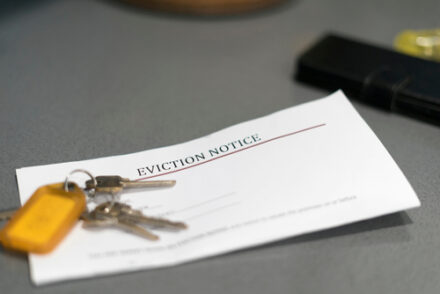
Court orders, but still no evictions for Landlords
9th February 2021 by Court orders, but still no evictions for Landlords
The Coronavirus pandemic has affected the way in which we work and socialise, locally, nationally and globally. Over the last year, the government has at times reacted by changing the law, often with very little notice. Nowhere has this been felt more strongly than in the sector of residential lettings, particularly with respect to private landlords and tenants.
What is the background?
Very briefly, as the extent of the pandemic became apparent, the length of the notice periods which landlords needed to give to tenants was increased and increased again. These notice periods have now risen from an average of around two to six months.
Additionally, from 27 March 2020, all claims for possession of residential property were stayed. In effect, a stay pauses the court proceedings, meaning that no action at all can take place – claims could be started at court, but, except in a few very specific situations, nothing further could happen.
The stay was extended more than once, but, finally, court action was allowed to restart from 20 September 2020. However, for any claims that had been started during the stay, a reactivation notice needed to be filed, or the claims would remain “paused” indefinitely. This was entirely the landlord’s responsibility.
Significantly, bailiffs were also prevented from carrying out any evictions. This means that even if a landlord managed to obtain a court order for eviction, they were practically powerless to do anything about it.
After that, back to normal?
Not exactly. The increased notice periods remain, as does the requirement for a reactivation notice. The rules relating to bailiffs have, however, been slightly amended.
So, what is the current position?
Court proceedings are being carried out, with claims relating to matters such as extreme rent arrears or anti-social behaviour being prioritised.
Bailiffs can now carry out evictions in certain cases, specifically where the tenant owes six months or more in rent (this was previously nine). Further, the changes also allow arrears which have accrued since 23 March 2020 to be counted towards the total outstanding, whereas previously this was prohibited.
Is this all in the landlord’s favour?
This appears to be more about the government seeking to balance opposing needs.
Initially, there was a push to protect tenants from potential homelessness, which is understandable. There now seems to be a shift towards recognising that many landlords (especially private individuals) have been put in difficult positions, with mounting arrears and, often, their own outgoings on the tenanted property growing out of control. In spite of the change, in many cases, having to wait for six months’ of arrears to accrue will still be a significant financial challenge.
If you or your business needs any assistance with a residential tenancy issue, from starting one correctly to recovering possession or arrears due, please contact our team today and we will be happy to help.
